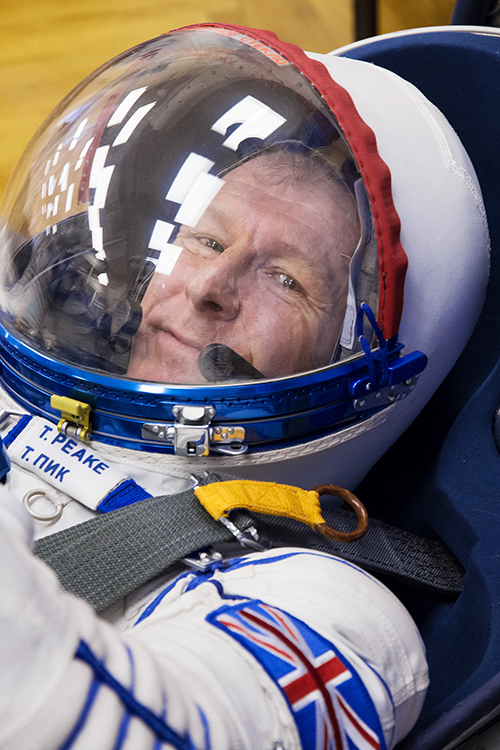Tim Peake Becomes First Official British Astronaut Aboard the ISS
December 18, 2015
On Tuesday, the United Kingdom sent its first publicly funded astronaut to the International Space Station (ISS). Tim Peake, an astronaut of the European Space Agency (ESA), arrived at the station six hours after launch aboard a Russian Soyuz spacecraft. During his six-month stay at the ISS, he will help conduct scientific experiments and perform public outreach. Peake joins American astronaut Scott Kelly and Russian cosmonauts Sergey Volkov and Mikhail Korniyenko aboard the station. He flew up together with Russian cosmonaut Yuri Malenchenko and American astronaut Timothy Kopra. Together, the six men make up the 46th expedition to the ISS.

Tim Peake became the first publicly funded British astronaut aboard the International Space Station on Dec. 15, 2015. Credit: Victor Zelentsov, NASA/ESA Credit: Victor Zelentsov, NASA/ESA
An astronaut is a person who pilots a spacecraft or works in space. Astronauts operate spacecraft and space stations, launch and recapture satellites, and conduct scientific experiments. The word astronaut comes from Greek words meaning sailor among the stars. Cosmonaut is a Russian word that means sailor of the universe.
Peake is not the first British citizen to be launched into space. In 1991, chemist Helen Sharman visited the Russian space station Mir as part of a project funded partly by British companies. Several other astronauts with dual British and United States citizenship have worked in space as members of the United States’ National Aeronautics and Space Administration (NASA).
In the past, the British government was reluctant to participate in manned spaceflight. It formally rejected training astronauts in 1986. But over time, decreasing costs and safety concerns, combined with the chance to bolster national pride and public interest in the sciences, caused the government to change course. In 2008, the British National Space Centre released a new space strategy document in which it expressed an openness to manned missions. After many years of difficult training, Tim Peake blasted off wearing the Union Jack flag patch on his spacesuit. The United Kingdom, known for its daring exploration of remote parts of the world in centuries past, has now begun manned exploration of space.
Additional World Book articles:
- Space exploration (1994) – A Back in Time article
- Space exploration (2000) – A Back in Time article
- Space exploration (2003) – A Back in Time article
- Space exploration (2008) – A Back in Time article


